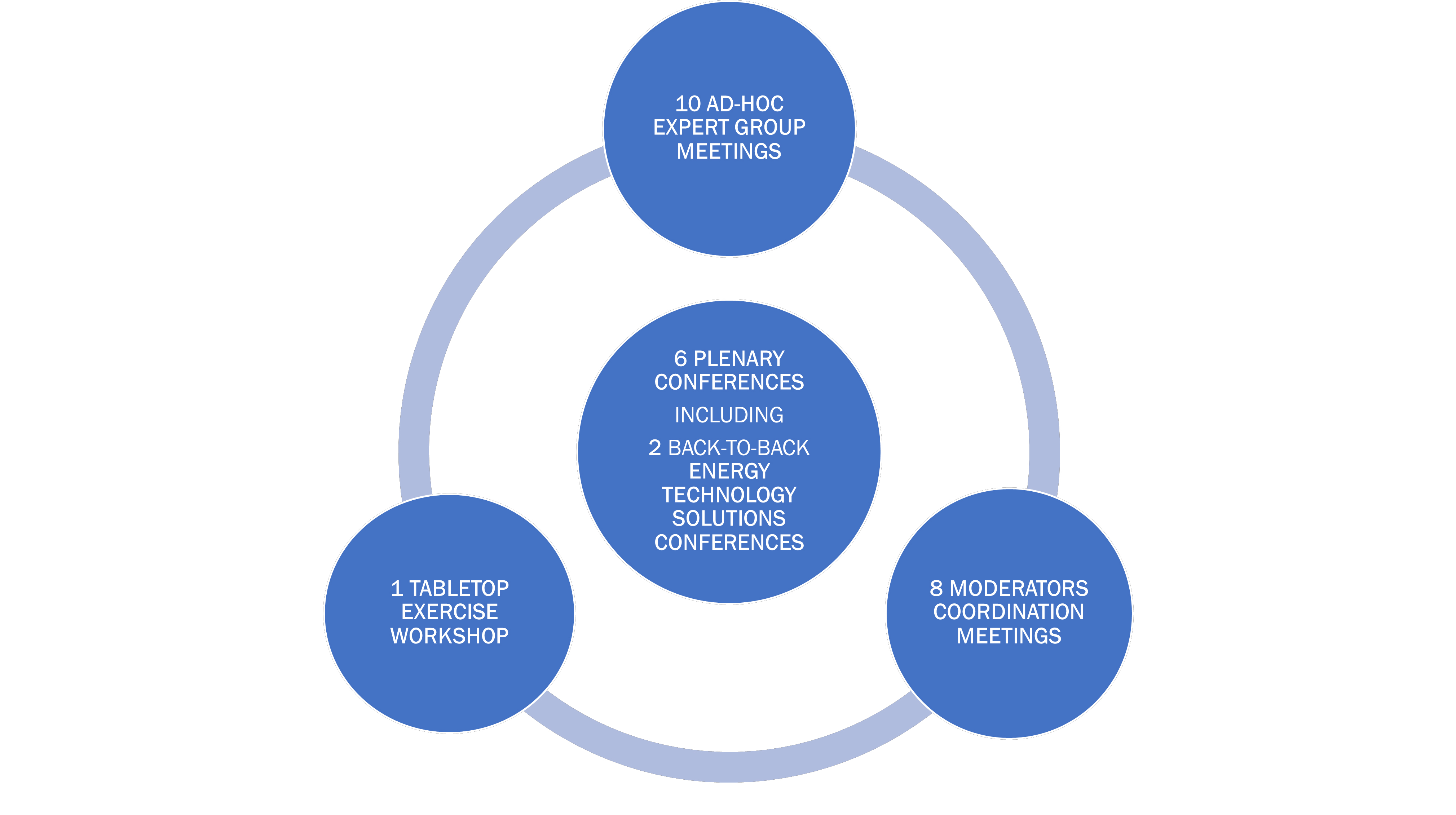In Phase IV, WG-1 will continue focusing on energy efficiency and buildings performance, WG-2 on renewable energy sources, and WG-3 on the protection of critical energy infrastructure.
The Transversal Working Group (TWG) consists of two sub-groups: the Policy and Management Observatory (overseeing finance and funding aspects) and the Technology and Innovation Hub (Figure 1).
Figure 1. CF SEDSS IV working group structure
Drawing on past experiences and striving to achieve the project’s objectives while adapting to future energy dynamics, Phase IV will keep the following types of events (see figure 2):
- 6 plenary conferences including two (2) back-to-back energy technology solutions conferences, and a dissemination event
- 1 joint thematic workshop / table-top-exercise
- 10 ad-hoc expert group meetings;
- 8 Moderators coordination meetings.

Figure 2. CF SEDSS IV activities
These events will provide the opportunity to address the targeted defence energy considerations, bring MoDs closer to relevant experts from industry, academia and research and technology organisations, and guarantee continuity of research activities developed during the plenary conferences.
Overall, Phase IV is expected to present the defence and security sectors with an economic, operational, and strategic opportunity to reduce reliance on fossil fuel and natural gas, to progressively minimise energy costs and carbon footprint and to enhance the operational effectiveness and energy resilience of their functions.
During Phase IV the Consultation Forum will pursue the following eight key objectives:
- enhance energy efficiency and improve the energy performance of building stocks and fixed infrastructures (including through the development or acceleration of renovation plans, and address the requirements concerning electro-mobility);
- promote further the usability of renewable energy or other alternative sources in the defence sector (including wind, solar, wave, tidal, biomass, geothermal, and renewable energy applicability in military transport);
- strengthen the protection and resilience of defence-related critical energy infrastructures from emerging and future challenges ranging from man-made and natural disasters to hybrid threats, terrorist and cyber-attacks;
- identify and evaluate the implications of the current EU regulatory framework implementation on the defence sector, in particular with regard to the:
- develop defence energy-related policy tools and methodologies and promote the implementation of energy management systems to be applied to defence-related infrastructures and buildings;
- identify innovative and smart energy technologies that could help lower the carbon footprint and, at the same time, increase the energy autonomy and operational resilience of the armed forces;
- enable the description and generation of defence energy-related project ideas and proposals (including dual-use synergies within the defence and civilian markets) that can:
- act as enablers of military operational capabilities;
- support the MoDs to address common energy challenges or shortfalls at multi-national, regional or cross-border level;
- assist the EU to achieve its strategic objectives on energy sustainability and energy security.
- identify and present existing or new financing mechanisms of defence energy-related topics as well as EU or other related and applicable funding instruments according to the legislative and administrative frameworks that can assist the MoDs and other defence-related stakeholders to realise their defence-energy related planning either at the national or multinational level.